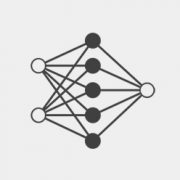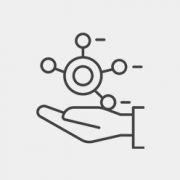Core ML represents a horizontal effort within our Machine Learning (ML) group to create libraries that are reusable across our solutions, to open source code and data, and to establish internal best practices for ML code and model development.
While our projects span various technical domains within ML, ranging from computer vision and audio signal processing to tabular data analysis, each of these domains contain reusable components that are likely to be useful across projects. For example, classification tasks on tabular data, along with pre-processing of noisy data, are likely to be ubiquitous for our work in health. Object detection tasks, measurement tasks on images and videos, creating fixed length dense representations for text and multimedia represent other areas of work that are likely to find multiple applications in the social domain.
As a nonprofit devoted to creating social impact through AI, we also support and practice open-sourcing of code and data wherever possible. Our core ML team is responsible for stewarding the open-sourcing of code that was primarily built for internal consumption within our solutions, ensuring that code is well documented and bug-free, and available for public use under the appropriate open source license(s). It is also responsible for ensuring that data that we share externally is stripped of any Personally Identifiable Information (PII) and that its availability is appropriately credentialed.

© 2025 Wadhwani AI
ROLES AND RESPONSIBILITIES
An ML Engineer at Wadhwani AI will be responsible for building robust machine learning solutions to problems of societal importance; usually under the guidance of senior ML scientists, and in collaboration with dedicated software engineers. To our partners, a Wadhwani AI solution is generally a decision making tool that requires some piece of data to engage. It will be your responsibility to ensure that the information provided using that piece of data is sound. This not only requires robust learned models, but pipelines over which those models can be built, tweaked, tested, and monitored. The following subsections provide details from the perspective of solution design:
Early stage of proof of concept (PoC)
Late PoC
This is early to mid-stage of AI product development
Post PoC
Responsibilities during production deployment
We realize this list is broad and extensive. While the ideal candidate has some exposure to each of these topics, we also envision great candidates being experts at some subset. If either of those cases happens to be you, please apply.
DESIRED QUALIFICATIONS
Master’s degree or above in a STEM field. Several years of experience getting their hands dirty applying their craft.
Programming

ROLES AND RESPONSIBILITIES
As an ML Scientist at Wadhwani AI, you will be responsible for building robust machine learning solutions to problems of societal importance, usually under the guidance of senior ML scientists. You will participate in translating a problem in the social sector to a well-defined AI problem, in the development and execution of algorithms and solutions to the problem, in the successful and scaled deployment of the AI solution, and in defining appropriate metrics to evaluate the effectiveness of the deployed solution.
In order to apply machine learning for social good, you will need to understand user challenges and their context, curate and transform data, train and validate models, run simulations, and broadly derive insights from data. In doing so, you will work in cross-functional teams spanning ML modeling, engineering, product, and domain experts. You will also interface with social sector organizations as appropriate.
REQUIREMENTS
Associate ML scientists will have a strong academic background in a quantitative field (see below) at the Bachelor’s or Master’s level, with project experience in applied machine learning. They will possess demonstrable skills in coding, data mining and analysis, and building and implementing ML or statistical models. Where needed, they will have to learn and adapt to the requirements imposed by real-life, scaled deployments.
Candidates should have excellent communication skills and a willingness to adapt to the challenges of doing applied work for social good.
DESIRED QUALIFICATIONS
